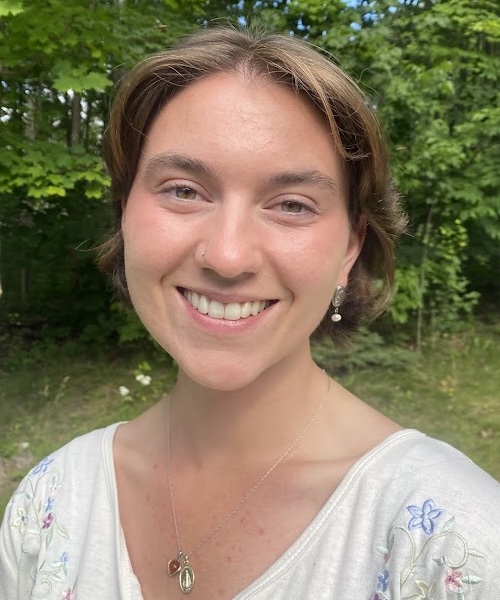Being at the International Association of Jesuit Universities (IAJU) Assembly in Bogotá as a member of the IAJU Global Citizenship Fellows Program was so powerful. I felt small, the way you do in an airport or a train station, but the smallness felt different than those other places—instead of feeling like just another grain of rice, or sand on a beach, I felt like a tiny piece of a beautiful jigsaw puzzle. I felt humbled, yet necessary, even if just to contribute one color in the puzzle. This, I think and hope, is the posture of the global citizen.
This idea that everyone has something important to give to some collective mission is an idealistic one, but it is something that I believe in, as a global citizen and as a Christian. A few times in the week we discussed the matter of idealism, and this issue stayed with me more than any other. Our directors asked us, in a workshop on dialogue, to discuss the question of whether global citizenship is reserved for the elite, something we who are privileged enough to travel and have international relationships feel exists, but is just not true for everyone. And I asked myself—are we just dreaming this up? Does it just sound pretty, this idea that we are all in this together, when really, we’re not?
This question of idealism and togetherness is exactly what Fr. Arturo Sosa addressed in his opening talk at the Assembly. He said that we need to treat each other like we already live in the world we want to create; if that isn’t idealism, then I don’t know what is! To me, it sounded like the central challenge of Christianity, which echoes through what’s required of a global citizen: to imagine a reality that seems too good to be true, and to try to bring it into the here and now--on earth as it is in heaven.
This is why I believe global citizenship, while certainly a political idea, is also metaphysical. The way I came to understand it, we aren’t global citizens because we see it that way, we are global citizens because it’s true. We are connected, not only through our economies and our political decisions, but through our shared humanity on this earth. And nothing proves our interconnectedness more than the matter of our common home.
The issue of climate change had its own panel discussion but was mentioned in almost every other panel. Whether we were talking about student mental health (climate anxiety), migration (forced migration through climate catastrophe), AI (the consequences of AI on our environment)—whatever we were discussing, we couldn’t avoid the all-encompassing issue of our treatment of the earth. The earth unites us in a way nothing else can. This is what indigenous people have been telling us for centuries, and I hope we truly begin to listen, and change.
So perhaps recognizing we are global citizens isn’t a luxury, but actually a necessity. How can we expect to heal our earth if we think one country’s decisions won’t impact anyone else? The panel on climate change was challenging, we’re already facing the very dire consequences of our actions. Still, I was overwhelmed with inspiration in the assembly hall. There I was, a tiny part of an international network of people, all trying to breathe the Jesuit mission into their universities like our lives depended on it (they kind of do). At the International Assembly of Jesuit Universities in Bogotá, I was listening to people say things like “network,” “community,” and “resource sharing,” and what I heard was the Holy Spirit calling us to live like global citizens, inspiring each person to give what gift they have to their local community, for the sake of our common home and our common humanity.

